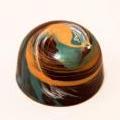-
Welcome to the eG Forums, a service of the eGullet Society for Culinary Arts & Letters. The Society is a 501(c)3 not-for-profit organization dedicated to the advancement of the culinary arts. These advertising-free forums are provided free of charge through donations from Society members. Anyone may read the forums, but to post you must create a free account.
Sourdough Bread Troubleshooting (Part 2)
-
Similar Content
-
- 22 replies
- 1,954 views
-
- 727 replies
- 209,703 views
-
- 828 replies
- 195,593 views
-
- 844 replies
- 246,841 views
-
- 3,880 replies
- 656,332 views
-
-
Recently Browsing 0 members
- No registered users viewing this page.






Recommended Posts